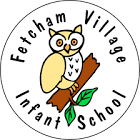English
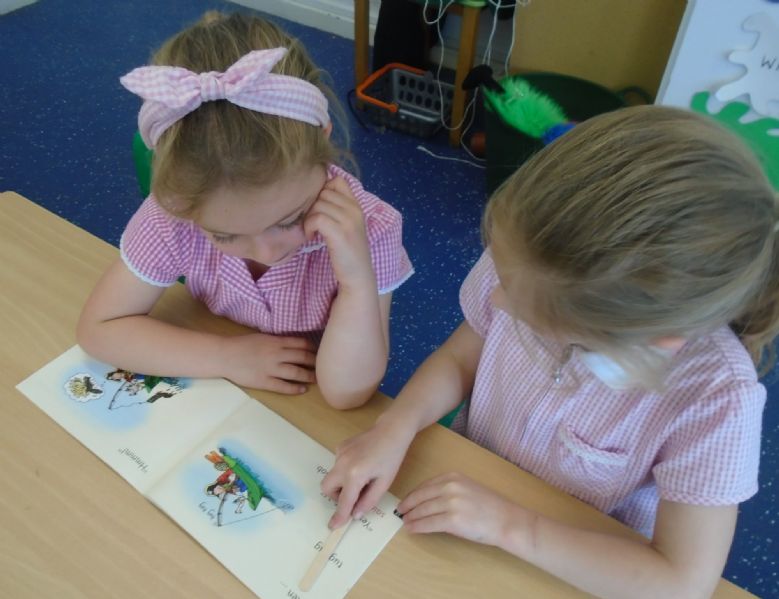
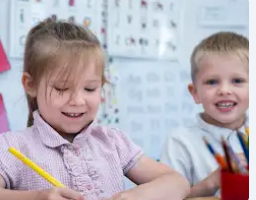
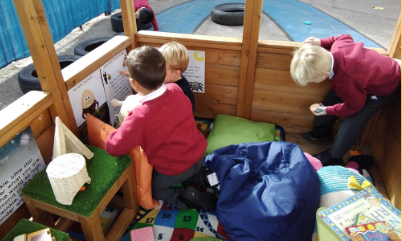
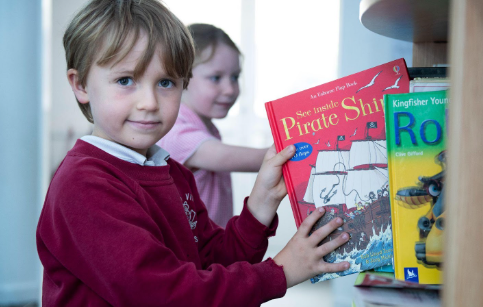
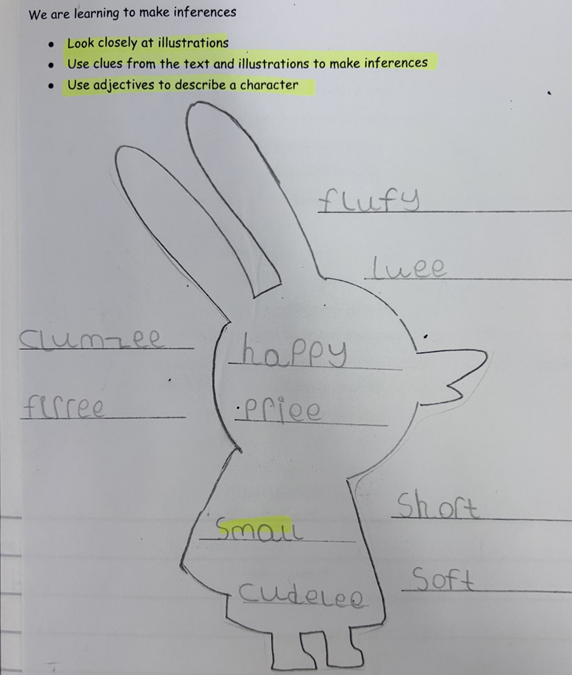
Here is advice on the Paired Reading approach explained at our Reading Workshop for Year 2 parents (November 2025)
Here are the slides from our Reading Workshop for Year 1 parents (November 2025)
Here are the slides from our Reading Workshop for Reception Parents (October 2025)
Our Intent for English
Reading and Phonics
Reading is our second priority; it is second only to keeping our children safe, secure and happy. It is our commitment that every child is a reader by the time they leave us in Year 2. This doesn’t simply mean that they have passed the Phonics Screening Check. It means they have a love of reading and begin to ‘devour’ books. Our reading curriculum focusses on: decoding, comprehension, fluency and nurturing a love of reading and books. We believe that all of these elements develop alongside one another and that they are all underpinned by a language-rich environment. We recognise the importance of having many opportunities to experience reading for pleasure, both at home and at school. For our young children, this includes sharing books read aloud by an adult. We ensure that children can explore and read a range of high quality texts, not only in English lessons, but in the wider curriculum too. Our children can explain their own reading preferences and read widely, including poetry, fiction and non-fiction texts.
We support children to acquire secure phonic knowledge and skills as early as possible, so that they can decode with speed and accuracy. This ensures that within Y2 they become independent readers who can read aloud with fluency and expression. They also start to build stamina for longer texts. We give our children the knowledge and skills they need to read for information, for meaning and for enjoyment. This includes making inferences and predictions and analysing characters and settings. It also involves developing their ability to listen and read closely and give responses to texts. We see reading as a crucial means through which to give children the knowledge and vocabulary they need to effectively express themselves in spoken and written language. We also explicitly teach vocabulary to help children to access and enjoy books more readily.
Writing
We make every effort to ensure that all children leave our school as confident and independent writers who enjoy writing. This involves developing their ability to communicate their ideas, thoughts and feelings confidently through both talk and writing, including building their vocabulary. It also involves developing executive function and their listening and attention skills so they can recall, organise and develop the ideas and information they need for written work.
We help children to understand why they need to write; to recognise the value of writing as a means of remembering, communicating, organising and developing ideas and information. This includes seeing a purpose for writing across the wider curriculum, not just in English. We equip them to write in a range of contexts and for different audiences. We ensure that children encounter a range of ideas and text forms that they can apply to their own writing. We teach children to reflect on, edit and evaluate their writing.
We ensure our children have the fundamental skills they need to compose, write and punctuate sentences with some automaticity and fluidity. We have outlined what we believe are the foundational knowledge and skills required in order to do this, and by taking time to secure these, children are better prepared to tackle more challenging tasks. This starts with establishing seating position and pencil grip and moves onto both word and sentence level knowledge and skills. It also includes a sharp focus on handwriting, spelling, punctuation and grammar. We teach children to present their writing neatly and with care; this includes learning to form all lowercase and capital letters, plus digits 0 to 9, correctly. By the end of Year 2, they should write in a legible, flowing, joined script.
Implementation
We provide a language-rich environment, with an English curriculum that places quality children’s literature at the centre of it. This includes providing high-quality interactions with skilled adults and open-ended play opportunities in Reception. It also involves explicit vocabulary teaching across the school using Word Aware and other approaches. Our Daily Storytime is a favourite and protected part of our school day. We select books that connect with children’s own experiences as well as those that give a ‘window’ onto the lives of people different to them. We ensure that children encounter a range of fiction, non-fiction and poetry texts. In Reception, children also have daily Rhyme-time to build their repertoire of rhymes, including nursery rhymes and number rhymes.
We use the Read Write Inc Phonics Scheme, which is taught daily by highly trained staff. Children quickly build a knowledge of phonemes and graphemes, as well as an increasing recognition of sight words and common exception words. They are assessed at least every 6 weeks to ensure they are in the right group. When children are ready to move beyond the Phonics Scheme, they read in our ‘Gold group’ sessions, where they explore texts and continue to practise and develop key reading skills, such as fluency, inference and prediction.
We provide rigorous intervention for children who are within our bottom 20% and/or not sustaining the expected progress in reading. We also use a language screening and intervention tool: the Wellcomm programme to check children’s language skills and provide targeted support for children who need it.
We have a calm and welcoming Library space with a wide range of books, along with book corners in each classroom. We invest in our book stock to keep it high-quality and up-to-date, retaining good copies of classic texts alongside the newer and bolder ones. Children take home school library books each week.
We recognise the importance of home reading in supporting children’s progression in reading as well nurturing a love of reading. Each week children are given two Read Write Inc books (one familiar and one unseen) as well as a book from the library to read at home. We support parents to help their children through running parent workshops and providing Read Write Inc virtual classroom videos in our weekly newsletter: The Fetcham Freelancer. We also hold events to promote reading, such as book fairs, sponsored reads and author visits.
As well as our Read Write Inc Phonics session, our KS1 classes have a daily English lesson, a daily handwriting session and a daily vocabulary session (Word Aware). We use the CLPE’s Power of Reading approach for our KS1 English lessons, ensuring that high-quality text is at the centre of what we do. Through text-based, whole-class teaching, teachers demonstrate high quality modelling within each lesson. Our sequence of lessons provide opportunities for drama, speaking and listening, word reading, grammar and punctuation, comprehension, vocabulary development, spelling, and writing. English lessons include teaching children to plan, write, edit and improve their writing. They increasingly write for different audiences, purposes and contexts. There are also planned opportunities for extended writing.
In Reception, literacy activities are woven throughout each day in whole class teaching, play-based learning and adult-led tasks. There are lots of opportunities to read, make marks, write, talk and engage in imaginative play. Through play, children revisit ideas, characters and vocabulary from the texts we have shared. These texts include one CLPE Power of Reading text each half-term, alongside other carefully-selected texts that are chosen to support teaching across all areas of the Early Years Foundation Stage Curriculum. Children steadily build up their written work in Reception as their phonics and fine motor skills develop. Writing their name legibly and independently is a key milestone, leading on to writing lists, labels, captions and then short sentences. We give many opportunities for children to retell and make up their own stories. Through these talk-based activities, we give them the knowledge and vocabulary they will need for more extended writing tasks in KS1.
Children’s spelling develops at first through their Read Write Inc Phonics lessons, where they ‘spell with Fred Fingers’, learning to segment words and to write the graphemes they have been taught, including alternative graphemes for the same phoneme. In English lessons, they also learn how to apply spelling rules to their writing, including learning about prefixes and suffixes. Children are taught Common Exception words in their Read Write Inc lessons, in English lessons and practise them for homework.
We place great emphasis on developing children’s fine motor skills so they can develop appropriate pencil grip and pressure to form letters easily and use one-handed tools such as scissors competently. Handwriting is explicitly taught using the Read Write Inc Handwriting Scheme. Children first learn to form the letters using the Read Write Inc handwriting rhymes in their Phonics sessions (e.g. 'round the apple, down the leaf' for ‘a’). They then move onto focusing on correct letter formation and positioning letters correctly on the line. They learn the correct strokes needed for individual letter formation, then the relative sizes and build up to joining letters in a word. We teach discreet 10-minute handwriting sessions daily in KS1. We expect children to show care with their handwriting across the curriculum.
We support children’s transcription skills through the ‘Hold a Sentence’ activity, which is part of Read Write Inc Phonics. This involves children being given a dictated sentence to write, so they can focus on getting the handwriting, spelling and punctuation correct.
Useful Websites and information
Early Years EYFS Writing ideas and Communication (Speaking and listening)
Year 1 and Year 2 Writing
Year 1 Grammar and punctuation and Spelling
Year 2 Grammar and punctuation and Spelling
